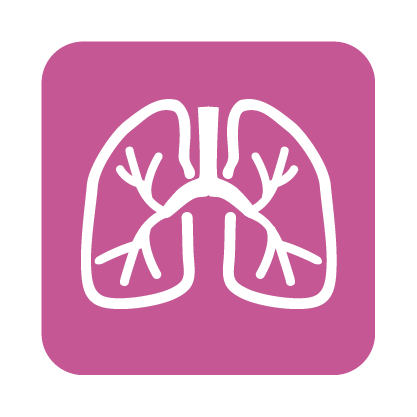Lung
What you need to know before and after a lung transplant
What is a lung transplant?
A lung transplant is an option for some patients with end-stage respiratory failure where other treatments haven't worked.
The procedure isn't suitable for everyone and isn’t a cure as there are risks as well as benefits. But for those who are able to have one, it may offer the best chance of a longer and better quality of life.
During a lung transplant, a single or pair of lungs are removed from one person (the donor) and given to another person (the recipient). 
There are many different causes of lung disease that might lead to needing a lung transplant. These include: idiopathic pulmonary fibrosis, cystic fibrosis, chronic obstructive pulmonary disease and pulmonary hypertension.
Getting started
Get information on why you might need a lung transplant and what tests are involved.
Benefits and risks
Learn about how a lung transplant can help, possible complications and warning signs.
Waiting for a lung
Find out about receiving a lung, waiting times and the organ offering process.
At the transplant centre
Find out about getting admitted to hospital, transplant surgery and when you can go home.
Living with a transplant
Discover the best ways to stay mentally and physically healthy after a transplant.
Care and support
Find out about support groups and getting help for depression or anxiety.
Lung transplant facts and stats

1963

106

Useful links
External links
Links to charities specific to lung donation and transplantation
Talk to your lung doctor (pulmonologist)
If you have any questions about lung transplantation, please speak to your care team who will be able to offer guidance and advice.
NHS Blood and Transplant (NHSBT) and the British Transplantation Society (BTS) update these pages regularly to reflect current UK organ donation and transplantation policies and practice. However, this website is not designed to replace discussions with the transplant teams caring for you. Your transplant team know you and your medical condition best and can give you more detailed information to inform and support your decisions. NHSBT and the BTS do not accept any responsibility or liability for any loss or damage caused to any persons as a result of any reliance placed upon, or decisions made as a result of, information given on this website.



